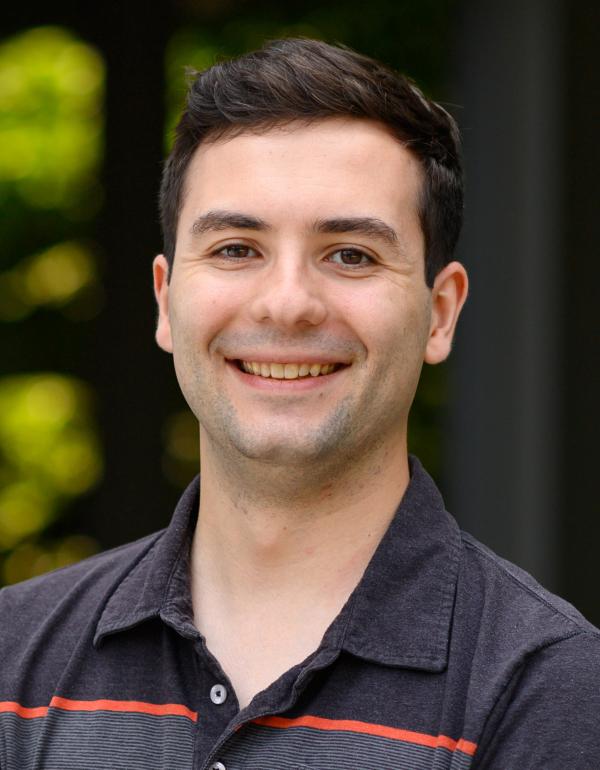
Contact Info
Benjamin Boyle
Assistant Professor
Education
- Post-doctoral Research Assistant: Princeton University, 2021-2024, Post-doctoral Advisor: Prof. David MacMillan
- Ph.D.: Colorado State University, 2016-2021, Ph.D. Research Advisor: Prof. Andrew McNally
Publications (* indicates shared authorship)
Prior to University of Maryland College Park- Unlocking carbene reactivity by metallaphotoredox α-elimination. Boyle, B.T.*; Dow, N. W.*; Kelly, C.B.; Bryan, M.C.; MacMillan, D.W.C. Nature, 2024, 631, 789
- Halogenation of the 3-position of pyridines through Zincke Imine intermediates. Boyle, B.T.*; Levy, J.N.*; Lescure, L.; Paton, R.S.; McNally, A. Science, 2022, 378, 773.
- Pyridylphosphonium Salts as Alternatives to Cyanopyridines in Radical-radical Coupling Reactions. Greenwood, J.W.; Boyle, B.T.; McNally, A.; Chem. Sci. 2021, 12, 10538
- Facile Pyridine S N Ar Reactions via N-Phosphonium Pyridinium Intermediates. Boyle, B.T.; Koniarczyk J.L.; McNally, A. SynLett, 2021, 32, 215.
- An Organocatalytic Mitsunobu Reaction. Boyle, B.T.*; Nottingham, K.G.*; McNally, A. Trends in Chemistry, 2020, 2, 174.
- Non-Symmetrical Bis-Azine Biaryls from Chloroazines: A Strategy Using Phosphorus Ligand-Coupling. Boyle, B.T.; Hilton, M.C.; McNally, A. J. Am. Chem. Soc. 2019, 141, 15441.
- Heterobiaryl Synthesis by Contractive C–C Coupling via P(V) Intermediates. Hilton, M.C.; Zhang, X.*; Boyle, B.T.*; Alegre-Requena, J.V.; Paton, R.S.; McNally, A. Science, 2018, 362, 799.
Research Interests
Organic synthesis and reaction methodology development, organometallic chemistry, medicinal chemistryMajor Recognitions and Honors
- Graduate Teaching Assistant Award, Colorado State University, 2018
- Whitman College Stephen Penrose Merit Scholarship, 2011-2015
Modern medicine requires robust synthetic methods for the discovery and cost-effective synthesis of life changing medicines. The Boyle group's research approaches the challenge of chemical manipulation through an organometallic lens for synthetic methodology development with an eye towards real-world applications. By exploiting organometallics, we unlock new reactivity for everyday chemicals and enable selective C-H functionalization using high-energy reactive species. This expands our ability to rapidly synthesize and derivatize bioactive compounds without the requirement for pre-installed functional handles. Through organometallic reactivity manipulation, our research enables a new creative perspective for synthetic methodology development.


